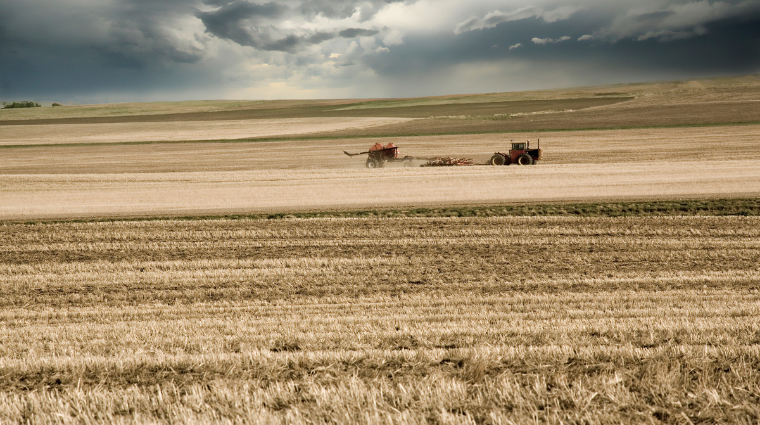
Saskatchewan Polytechnic is looking for volunteers to take part in the Saskatchewan Farmer and Rancher Mental Health (FARMh) initiative
January 18, 2021 – The Farmer and Rancher Mental Health (FARMh) initiative is a new patient-oriented research project funded by Saskatchewan Polytechnic, Saskatchewan Center for Patient Oriented Research and the Saskatchewan Health Research Foundation. In this study, key features of a farm-culture friendly mental health support system for Saskatchewan farmers and ranchers will be identified.
“Our research team is currently recruiting Saskatchewan farmer and rancher volunteers to participate in a 30-60-minute phone interview for the FARMh study,” says Michelle Pavloff, Sask Polytech research chair for rural health and principal investigator. “The confidential interviews will focus on the participants’ ideas for effective mental health supports that are tailored towards farmers and ranchers.”
The goals of phase one of the study are to identify the key features needed for a mental health support system for Saskatchewan farmers and ranchers. This information will be used to develop a farm-culture friendly mental health program in phase two of the FARMh initiative.
Farming and ranching can be high stress occupations. Some studies have shown that farmers and ranchers are at a higher risk of anxiety and depression compared to the general population. Farming and ranching families often face challenges that are beyond their control such as weather, pests, disease, high-input costs and volatile markets.
“Thank you in advance to all of the volunteers who will be stepping forward to share their stories. These may be difficult personal stories to share and we recognize how challenging this may be. Unfortunately, there is still a stigma associated with asking for support,” says Sandra Blevins, dean for the School of Nursing and School of Health Sciences. “This study will help identify the challenges as well as explore solutions to the mental health challenges farmers and ranchers may experience. The schools’ Centre for Health Research, Improvement and Scholarship (CHRIS) supports faculty in taking real life problems and offering timely, real solutions. That’s applied research in action.”
In December, Will Banford, a young farmer/rancher from Eastend Saskatchewan, heard about the FARMh study from a friend. To support the cause his family business, Red Rock Land & Cattle, auctioned off a heifer and donated the proceeds of $26,800 to the mental health project.
“My dad and I were talking about the COVID-19 pandemic and how 2020 was a tough year for a lot of people,” says Banford. “We wanted to do something to help those struggling with mental health. When we heard about the FARMh study it was the perfect fit. We are excited to help launch this important initiative to address some of the mental health challenges facing the agriculture sector.”
“The FARMh team is thankful for the support we have received to date. We are passionate about improving the mental health of Saskatchewan people, particularly those in the agricultural industry,” says Pavloff. “Everyone on the FARMh research team comes from a rural or agricultural background. We are excited to create a program to help farmers and ranchers receive the right resources at the right time to support their mental health.”
Phase one of the study is currently underway and will run until Fall 2021. This phase of the study will inform the next steps in planning a mental health program, resource or intervention that will be designed by Saskatchewan ranchers and farmers. Phase two of the study will commence early 2022. Results will be available to view by the public on the FARMh website.
To participate in the study, farmers and/or ranchers must own or lease their farm or ranch and be working on their farm or ranch. Participants must be over 18 and live in Saskatchewan. For more information about this study or to volunteer please contact Michelle Pavloff, Sask Polytech research chair for rural health, at Michelle.Pavloff@saskpolytech.ca or 1-639-414-FARM (3276). This project has been approved by the University of Saskatchewan Research Ethics Board (REB # 2174).
CBC podcast: New study looks at how to support farmers' mental health

